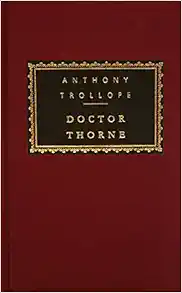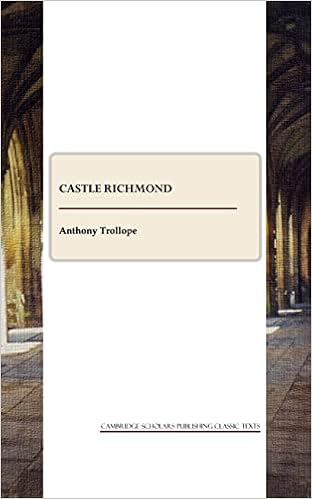
The Small House at Allington: The Chronicles of Barsetshire (Oxford World's Classics)
Description
From School Library Journal Grade 8 Up-Trollope's tale about Lily Dale, and her love for the calculating Adolphus Crosbie.Copyright 1998 Reed Business Information, Inc. --This text refers to an alternate kindle_edition edition. Novel by Anthony Trollope, published serially from September 1862 to April 1864 and in two volumes in 1864, the fifth of his six BARSETSHIRE NOVELS. -- The Merriam-Webster Encyclopedia of Literature --This text refers to an alternate kindle_edition edition. Anthony Trollope (24 April 1815 – 6 December 1882) was one of the most successful, prolific and respected English novelists of the Victorian era. Among his best-loved works is a series of novels collectively known as the Chronicles of Barsetshire, which revolves around the imaginary county of Barsetshire. He also wrote perceptive novels on political, social, and gender issues, and on other topical matters. Trollope's literary reputation dipped somewhat during the last years of his life, but he regained the esteem of critics by the mid-twentieth century. --This text refers to an alternate kindle_edition edition. Novel by Anthony Trollope, published serially from September 1862 to April 1864 and in two volumes in 1864, the fifth of his six BARSETSHIRE NOVELS. -- The Merriam-Webster Encyclopedia of Literature --This text refers to an alternate kindle_edition edition. Roderick Random was published in 1748 to immediate acclaim, and established Smollett among the most popular of eighteenth-century novelists. Narrated by an unheroic, apparently rudderless hero named Random, Smollett's wildly energetic and entertaining novel is held together not least by the narrator's outrage and dismay. Although Roderick Random was first published anonymously, the secret of Smollett's authorship was soon discovered, with the result that many readers thought they recognized similarities between the life of the hero and that of his creator. Certainly Roderick Random's early years - disinherited and without wealth and influence - and his university career, apprenticeship and service as a naval surgeon, vividly reflect the experiences of the author. How Random learns to survive the fickle hand of fortune, recovers his long-lost father, marries his beloved Narcissa, and dispatches his enemies is the stuff, not of autobiography but of a novel which profoundly satirizes the moral chaos of its times. Dickens and Thackeray, among other great Victorians, applauded Smollett for his wit and invention, and in Roderick Random we enjoy the novel of a pioneer opening up the frontiers of fiction. --This text refers to an alternate kindle_edition edition. Read more
Features & Highlights
- 'She had resolved to trust in everything, and, having so trusted, she would not provide for herself any possibility of retreat.'Lively and attractive, Lily Dale lives with her mother and sister at the Small House at Allington. She falls passionately in love with the urbane Adolphus Crosbie, and is devastated when he abandons her for the aristocratic Lady Alexandrina de Courcy. But Lily has another suitor, Johnny Eames, who has been devoted to her since boyhood. Perhaps she can find renewed happiness in Johnny's courtship?The Small House at Allington was among the most successful of Trollope's Barsetshire novels, and has retained its popularity among modern readers. Lily Dale's stubborn constancy is a troubling reflection of Trollope's divided feelings about the need for progress and reform in the context of liberal thought and politics. Her story is a subtle exploration of loyalty and ambition, and the pressure for change in a rapidly evolving world.ABOUT THE SERIES: For over 100 years Oxford World's Classics has made available the widest range of literature from around the globe. Each affordable volume reflects Oxford's commitment to scholarship, providing the most accurate text plus a wealth of other valuable features, including expert introductions by leading authorities, helpful notes to clarify the text, up-to-date bibliographies for further study, and much more.





